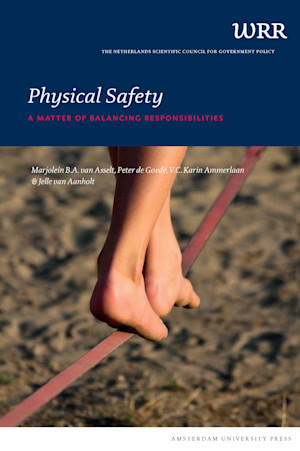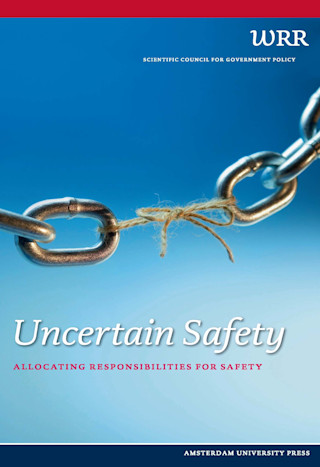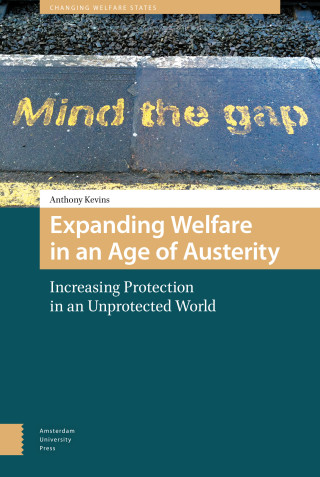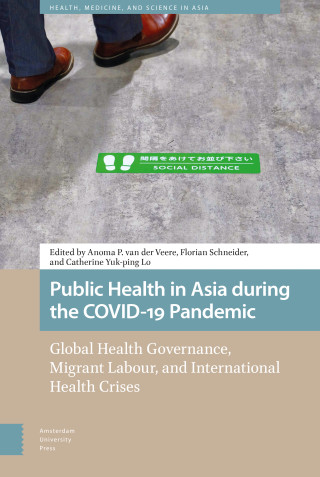
Physical Safety
A Matter of Balancing Responsibilities
Physical safety is a core task of government. It is neither surprising nor unreasonable for government to be held accountable for hazardous substances, for food safety, for flood protection, for the spread of infectious diseases, or for the risks involved in new technologies.
In 2011 the Dutch Ministry of the Interior and Kingdom Relations asked the Scientific Council for Government Policy (wrr) to investigate the scope for the development of a generic risk policy in relation to physical safety. Do citizens and businesses take sufficient responsibility for physical safety? Could the government assume a smaller role, and what part could the business community play in this?
In this report the WRR argues that in order to answer these questions a distinction needs to be made between incidents, damage, risk and uncertainty. In addition, the wrr recommends that the thinking about responsibility for safety should not be placed in the perspective of a failing government, but that the central focus should be on the ambition of good governance. Finally, the wrr suggests that thinking about safety from the perspective of damage offers a useful framework for thinking through and reassessing the distribution of responsibilities. Responsibility for preventing, limiting and dealing with damage can only be assigned in advance, not retrospectively.
In 2011 the Dutch Ministry of the Interior and Kingdom Relations asked the Scientific Council for Government Policy (wrr) to investigate the scope for the development of a generic risk policy in relation to physical safety. Do citizens and businesses take sufficient responsibility for physical safety? Could the government assume a smaller role, and what part could the business community play in this?
In this report the WRR argues that in order to answer these questions a distinction needs to be made between incidents, damage, risk and uncertainty. In addition, the wrr recommends that the thinking about responsibility for safety should not be placed in the perspective of a failing government, but that the central focus should be on the ambition of good governance. Finally, the wrr suggests that thinking about safety from the perspective of damage offers a useful framework for thinking through and reassessing the distribution of responsibilities. Responsibility for preventing, limiting and dealing with damage can only be assigned in advance, not retrospectively.
- Title
- Physical Safety
- Subtitle
- A Matter of Balancing Responsibilities
- Authors
- Marjolein van Asselt
- P.J.M. de Goede
- Karin Ammerlaan
- Jelle van Aanholt
- Price
- € 43,95 excl. VAT
- ISBN
- 9789089645135
- Format
- Paperback
- Number of pages
- 96
- Language
- English
- Publication date
- 09 - 10 - 2012
- Dimensions
- 15.6 x 23.4 cm
- Open Access
- Download on Open Access Platform
- Series
- WRR Publications
- Category
- Politics and Government
- Discipline
- Social and Political Sciences
Foreword
1 Introduction
1.1 Responsibility for physical safety
1.2 Request for reflection
1.3 Key concepts: incidents, damage, risks and uncertainty
1.4 Interactions
1.5 Guide to this publication
2 Dealing with incidents
2.1 Risk-regulation reflex?
2.2 Perceived reality
2.3 Lack of evidence
2.4 Tilting the perspective towards good governance
2.5 Conclusion
3 Risks and uncertainty
3.1 Fundamental political appraisal
3.2 Intertwine opportunities and threats
3.3 Make allowance for the social and psychological properties of danger
3.4 Utilise risk comparisons
3.5 Accept uncertainty – and the responsibility for uncertainty
3.6 Organise the way uncertainty is dealt with
3.7 Incorporation into policy
3.7.1 The national risk assessment
3.7.2 Amending environment and planning law:
3.8 Conclusion
4 Damage arrangements:
4.1 Damage as the focal point
4.2 Current practices
4.3 Reasons for uncompensated damage
4.4 Damage arrangements as a basis for a balanced allocation of responsibility
4.4.2 The role of citizens
4.4.3 The role of government
4.5 Conclusion
4.4.1 Businesses taking responsibility for themselves and society
5 Conclusions
5.1 Difficult questions
5.2 Key concepts: incidents, damage, risks and uncertainty
5.3 Beyond reflexes
5.4 Is a general policy possible?
5.4.1 Reference points for dealing with risks and uncertainty
5.4.2 Damage arrangements: a different perspective on the allocation of responsibility
5.5 Top three on the list of priority studies
5.6 Final remarks
Bibliography




